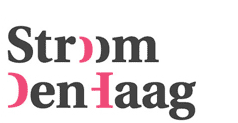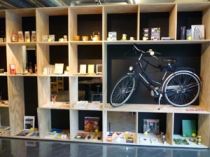Time/Bank workshop: What is the good of wage?
An intensive workshop on alternative currency theory and practice
Saturday 17 September 2011, 13:00 hours
Presented by Stroom Den Haag
Location: NAiM Bureau Europa,
Avenue Céramique 226, Maastricht
Directions to NAiM click here
A wage is the foundation of capitalist relations of production. It is the measuring stick by which the productive capacities of the worker are given value. Does the regime of wage as a predominant system through which value is distributed to a labor-force adequately measure your investment in the field of labor, however? How can a system that was developed for the productivity cycles of a factory and agricultural economy compensate for immaterial production? Do you feel subjected to an exhausting life of increasingly undervalued labor? Have you grown frustrated with the unregulated wage protocols of the service sectors? Join us in Maastricht for an intensive afternoon discussion on Time/Bank's and other
alternative currency models that are being developed today for the needs
and desires of the service sectors and beyond!
PROGRAM
Imagining the Future(s) of Wage
Jaromil Rojo of DYNDY
DYNDY is an information hub focused on the development of Pattern Languages for Alternative and Complementary Money Systems. Jaromil Rojo will discuss strategic organizational models that could inform and empower grassroots communities through tools to overcome scarcity. The focus of the presentation will be on crowdfunding schemes and credit circuits, as well p2p and crypto currency platforms. These systems will be addressed as imagined technologies of the future that could further current developments in community driven and Commons centered sustainability models.
Time Banks and the Labor Theory of Value
Presented by Noah Brehmer of Time/Bank Stroom Den Haag
The vision of time as a monetary representation of labor emerged in the 19th century. Pierre Joseph Proudhon, Karl Rodbertus, John Gray, Josiah Warren and others were key protagonists behind these revolutionary narratives. Envisioning social-utopian realities where all would have an equal share in the means and ends of production, they organized currency systems that were morally bound to a labor theory of value. A labor theory of value holds that when labor or its product is sold, in exchange, it ought to receive goods or services embodying the amount of labor necessary to produce an article of exactly similar and equal quantity. The equivalency of wage envisioned by these 19th century political figures fell decisively short of any commensurable manifestation however. Noah Brehmer will present research on the labor theory of value and its historical shortcomings. Following this brief historical illustration of precedents in alternative currency models a speculative blueprint will be drawn for time banking movements of the 21st century.
The measure of all things? Art, precarious labor and the wage relation
Presented by Joost de Bloois of Amsterdam University
Over the past decade, the notion of ‘precarity' has served as a rallying cry for political and cultural activism alike. As the structural uncertainty of livelihood, ‘precarity' has come to signify the socio-economic, as well as existential, condition for large segments of society under global, neo-liberal capitalism. Today, ‘precarious' work does not just entail physical labor: it is precisely within so-called ‘immaterial labor' (care work, emotional labor, creative industries, the cultural sector at large) that we encounter ‘precarity' as a common denominator. One crucial aspect of this type of precarious work (as theorized by a.o. André Gorz or Franco Berardi) is that it is not just structurally underpaid, but that, by its very nature, it is largely in excess of any traditional financial measuring stick. Today's living labor generates a different type of surplus value than it did for traditional Marxism (cf. Diedrich Diederichsen): if product and producer merge, if living labor becomes ‘bio-political', than surplus value becomes immeasurable. Contemporary struggles against ‘precarity', whether these are political or cultural, should therefore not just be defensive of existing rights, but also look for alternative models for the wage relation.
More about Time/Bank Den Haag click here.
- Saturday 17 Sep '11 13 hours
- NAIM Bureau Europa, Avenue Céramique 226, Maastricht
- Entree: free




















